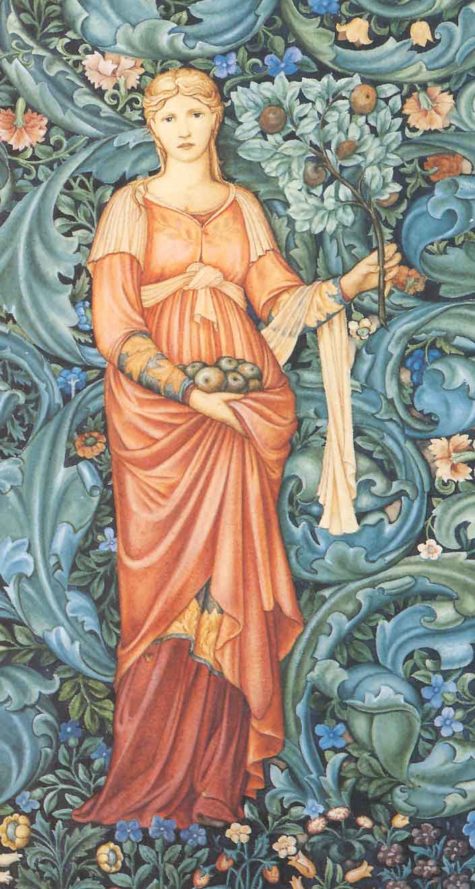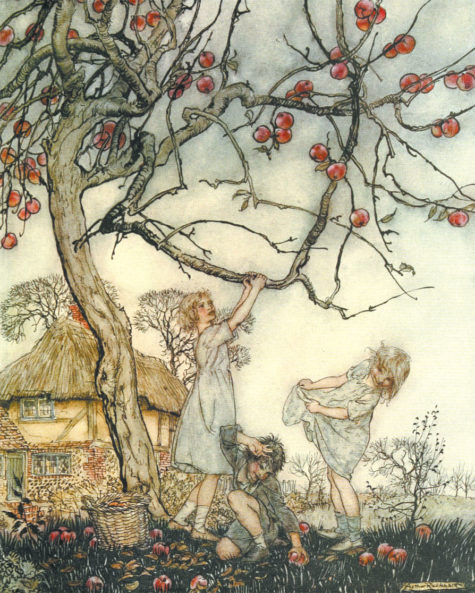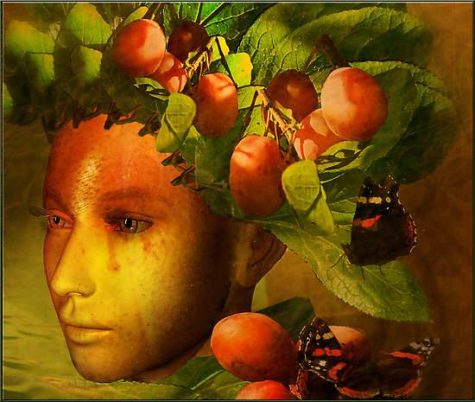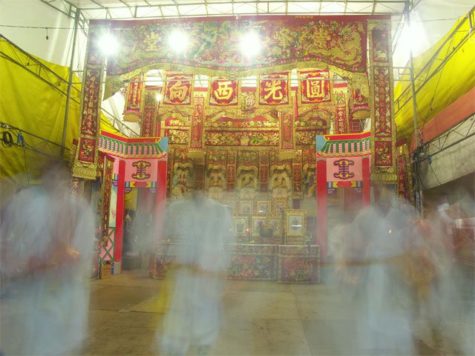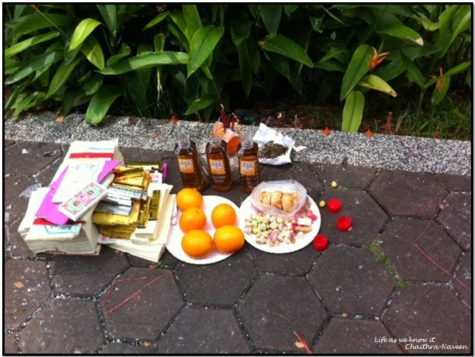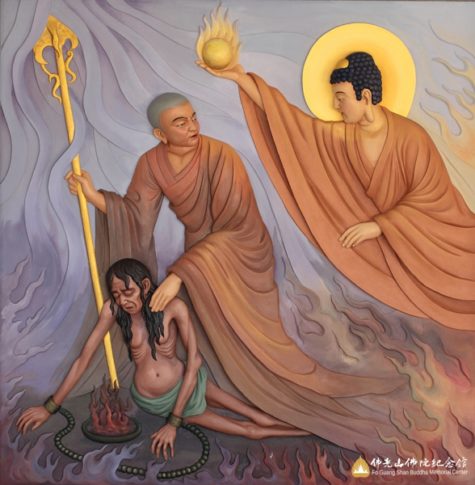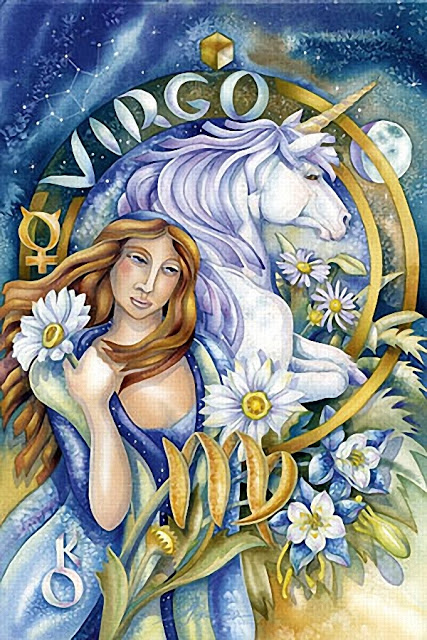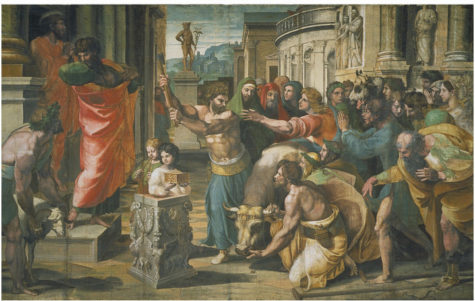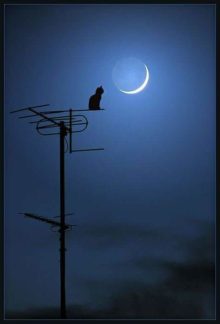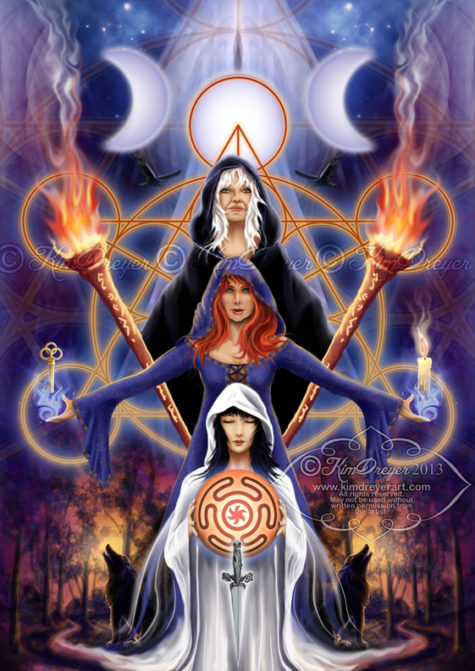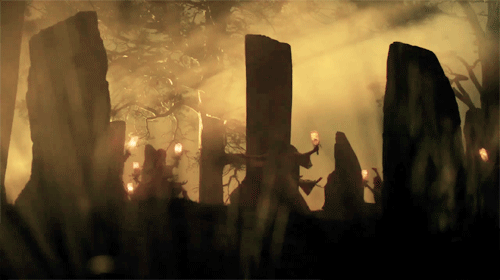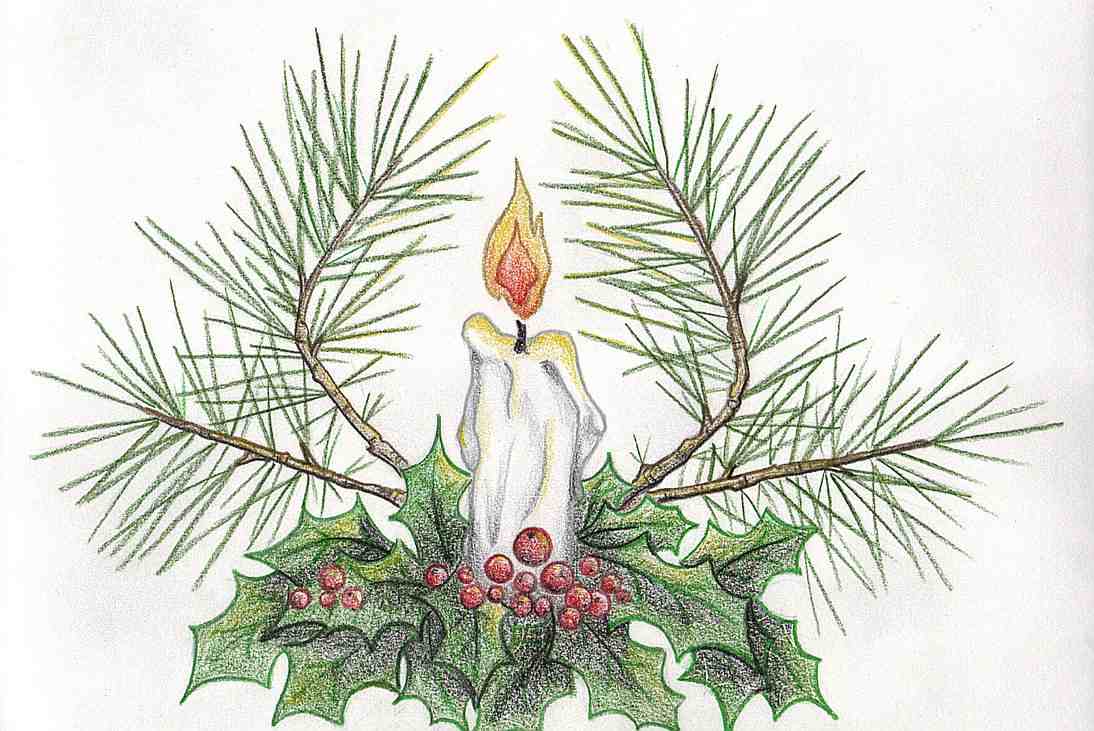August
According to some calendars, August 1st is the Egyptian New Year. So if you’d like to rethink those New Year’s Resolutions from back in January, or if you’d like to do some spells or rituals for the New Year but don’t want to wait another four months, today is a golden opportunity.
“Wipe the slate clean
dream a new dream.”
With a little bit of imagination, the above quote can be used to create a spell for new beginnings. Here’s an example. You will need a small chalkboard or dry erase board, or a piece of paper, a pencil, and an appropriate eraser.
Light a white candle and think about the resolutions you made for the New Year, in particular, the ones that you were unable to keep. Write them on the chalkboard. As you write each one, say out loud:
“I don’t have to do this
if I don’t want to!”
Now, take your eraser, and begin erasing the resolutions. As you erase, chant the following incantation over and over until the chalkboard (or whatever you used) is totally clean.
“I wipe the slate clean,
I dream a new dream.”
You now have a clean slate, and an opportunity to create a whole new dream. Enjoy!
Note: This post was put together by Shirleytwofeathers you may repost and share if you give me credit and a link back to this website. Blessed be.
Pomona’s Day of Honoring is often cited as November 1, making it a close match to the Celtic holiday Samhain. But sometimes it’s cited as August 13. Taken together, those days bracket the apple season. The earliest dessert apples begin to ripen in late summer, while the last storage apples finish in late autumn.
Even before the Romans added Pomona to the Samhain festivities, the Celts traditionally roasted apples and nuts in the bonfires. Pomona’s associations strengthened the role and symbolism of this fruit in connection with the holiday. This may be the origin of the modern custom of “bobbing for apples.”
To do on Pomona’s Day:
- Plant an apple tree.
Trees set out during the autumn planting season have a chance for extra root growth before they leaf out in the spring. Invoking Pomona’s blessing for her favorite type of tree will help your apple sapling grow big and strong.
This is especially helpful for grafted trees, which are a little more fragile than self-rooted trees and can use a boost from the goddess of grafting.
- Do some divination.
Do divination or other magic with fruits and nuts. The seeds, peels, and flesh of fruiting plants are useful in many types of divination and spellcraft. At this time of year, the veil between worlds is thin, making divination easier and more effective.
Divination with apples includes such things as cutting the peel from an apple all in one strip and tossing it to reveal the initials of one’s future spouce, placing apple seeds on the coals to see if they lie quietly (fortelling a happy relationship) or fly apart (foretelling heartbreak), and cutting an apple in front of a mirror to scry one’s beloved.
- Practice some Apple Magick.
Another set of practices draws on the apple’s qualities as a magickal fruit with power over the otherworld. These rituals deal with death and banishing. An apple may be cut in half and buried to cure a disease, settle a quarrel, or break a bad habit. Apples are also sometimes thrown to drive away evil spirits, or left out to feed the spirits of the dead so they do not trouble the living.
Ritual for Pomona’s Day
Here is a nice little ceremony to honor Pomona on her day:
- Colors: Red, yellow, green
- Earth
- Altar: Upon cloth of any or all of these colors, lay baskets of apples (preferably the old Roman variety “Lady”)and other tree fruit, a jug of cider, and a pruning knife.
- Offerings: Water fruit trees.
- Daily Meal: Vegetarian, with any food made with apples.
Invocation to Pomona
Lady of the Apple Tree
Whose red-cheeked visage greets the dawn,
Lady of the Pear Tree
Whose sweetness salves the questing tongue,
Lady of the Peach Tree
Whose blush transforms the morning sky,
Lady of the Plum Tree
Whose scent entices, smooth and smiling,
Lady of the Cherry Tree
Whose scarlet lips are drenched in raindrops.
Lady of the blossoming branch
Who entices bees to dance with you,
Lady of the secret orchard
Where Vertumnus gained his entry,
Where he came in secret, clothed in
Vestments of the ancient Crone,
God of growth, god of seasons,
God of turning, he took you there
As you offered up your nectar
And all the trees above you burst their buds.
Lady of the ancient ones, the Trees
Who give forth their children one by one
That we may know not just mere survival
But sweetness as well, help us to remember
The beauty and abundance of your gifts.
Chant:
Pomona Pomona
Pomum Pirum Prunus
Pax Pactum Promissio
Sources:
The seventh lunar month in the traditional Chinese calendar is called Ghost Month. These dates vary from year to year, in 2017, Ghost Month runs from August 28 to September 19, and the Ghost Festival is on Sept 5.
On the first day of the month, the Gates of Hell are sprung open to allow ghosts and spirits access to the world of the living. The spirits spend the month visiting their families, feasting and and looking for victims.
There are many taboos in the Ghost Month. For example, do not wear the clothes with your name, do not pat other people on the shoulder, do not whistle, children and senior citizens should not go out at night.
There are three important days during Ghost Month. On the first day of the month, ancestors are honored with offerings of food, incense, and ghost money – paper money which is burned so the spirits can use it. These offerings are done at makeshift altars set up on sidewalks outside the house.
Almost as important as honoring your ancestors, offerings to ghosts without families must be made, so that they will not cause you any harm. Ghost month is the most dangerous time of the year, and malevolent spirits are on the look out to capture souls.
This makes ghost month a bad time to do activities such as evening strolls, traveling, moving house, or starting a new business. Many people avoid swimming during ghost month, since there are many spirits in the water which can try to drown you.
The 15th day of the month is Ghost Festival, sometimes called Hungry Ghost Festival. The Mandarin name of this festival is zhōng yuán jié (中元節 / 中元节). This is the day when the spirits are in high gear. It’s important to give them a sumptuous feast, to please them and to bring luck to the family. Taoists and Buddhists perform ceremonies on this day to ease the sufferings of the deceased.
The last day of the month is when the Gates of Hell are closed up again. The chants of Taoist priests inform the spirits that it’s time to return, and as they are confined once again to the underworld, they let out an unearthly wail of lament.
The story:
The idea of a feast for the ghosts comes from a story of Buddhism. Moggallana was one of Buddha Shakyamuni’s best students. He had various supernormal powers and owned the divine eyes. One day, he saw his deceased mother had been born among hungry ghosts.
He went down the Hell, filled a bowl with food to provide for his mother. Before reaching his mother’s month, the food turned into burning coals which couldn’t be eaten. Moggallana cried sorrowfully and asked for help from Buddha.
Buddha said the sins of his mother were deep and firmly rooted, and couldn’t be forgiven just using the divine power. It would require the combined power of thousand monks to get rid of her sins. Buddha told Moggallana:
“the 15th day of the 7th lunar month is the Pavarana Day for the assembled monks of all directions. You should prepare an offering of clean basins full of hundreds of flavors and the five fruits, and other offerings of incense, oil, lamp, candle… to the greatly virtuous assembled monks. Your present parents and parents of seven generations will escape from sufferings.”
Following Buddha’s instructions, Moggallana’s mother obtained liberation from sufferings as a hungry ghost by receiving the power of the merit and virtue form the awesome spiritual power of assembled monks on 15th day of the 7th lunar month.
Today, similar rituals are held in the Buddhism temples on this day for the deliverance of all suffering spirits.
Found at: Mandarin.About.Com and other sources
Formerly known as Woman Suffrage Day, August 26 marks the ratification of the 19th Amendment to the U.S. Constitution (1920), granting women the right to vote. Ratification came in Tennessee, where suffragist (Anitia) Lili Pollitzer, age 25, persuaded Tennessee state legislator Harry T. Burn, age 24, to cast the deciding vote.
“I know that a mother’s advice is always safest for a boy to follow,” he said, “and my mother wanted me to vote for ratification.”
The country’s 26 million voting-age women were enfranchised by this change in the Constitution. Longtime suffragist Carrie Chapman Catt summed up her experiences in the battle this way: “Never in the history of politics has there been such a nefarious lobby as labored to block the ratification.”
Upon ratification, Catt founded the League of Women Voters, an organization now dedicated to providing impartial, in-depth information about candidates, platforms, and ballot issues.
From: Almanac.com
Virgo is the sixth sign of the zodiac. The sun enters Virgo at slightly different times each year, usually around Aug 22, sometimes the day before or the day after.
- Symbol: The Virgin
- Element: Earth
- Gemstone: Sapphire
- Keyword: I Analyze
Virgoans are modest, down-to-earth people with a shrewd approach to life. They enjoy detailed, precise work and constantly strive for perfection. They can be critical, of both themselves and others, when their high standards are not met. Virgoans enjoy working behind the scenes. They seldom seek the spotlight, but are not afraid to stand up for themselves when their sense of honesty and fair play is affected
From 365 Goddess, we have this for today:
- Themes: Excellence; Learning; Purity; Justice; Knowledge; Reason; Innocence
- Symbols: Stars
- Presiding Goddess: Astraea
About Astraea:
This Greek goddess motivates fairness and virtue within us. She empowers our ability to “fight the good fight” in both word and deed, especially when we feel inadequate to the task. According to lore, she left earth during the Golden Age because of man’s inhumanity to man. She became the constellation Virgo.
To Do Today:
In astrology, people born under this sign, like Astraea, strive endlessly for perfection within and without, sometimes, naively overlooking the big picture because of their focus on detail. Astraea reestablishes that necessary perspective by showing us how to think more globally. To encourage this ability, draw a star on a piece of paper and put it in your shoe so that your quest for excellence is always balanced with moderation and sound pacing.
To meditate on this goddess’s virtues and begin releasing them within, try using a bowl (or bath) full of soapsuds sprinkled with glitter (this looks like floating stars) as a focus. Light a candle nearby and watch the small points of light as they dance; each one represents a bit of magical energy and an aspect of Astraea. Tell the goddess your needs and your dreams, then float in her starry waters until you feel renewed and cleansed.
More About the Sun in Virgo:
The Sun is in Virgo from approximately August 21 to September 20, depending on the year.
- Ruler: Mercury
- Season: Summer
- Modality: Mutable
- Metal: Mercury
- Stone: Sapphire
- Color: Blue, Beige
- Flowers: Aster; Morning Glory
- Anatomy: Intestines, the nervous system
- Keywords: analytical, intelligent, reserved, critical, helpful, conscientious
It is rare to find the stereotypical nitpicky, exacting, “clean freak” in modern-day Virgos. Although the sign of Virgo has evolved with the times, there are some unmistakable traits that remain. Virgo people are generally respectable, hard-working individuals who have a love of knowledge and know-how.
Virgo’s symbol, the Virgin, shows itself in the lives of Virgos through a love of all that is “natural” and a certain purity of spirit that keeps Virgos self-sufficient and self-contained, at least on the surface. Virgos are sensitive to their surroundings, and they tend to embarrass easily. They are generally reticent when faced with anything or anyone new. However, once they feel comfortable, they can talk up a storm.
Many Virgo Suns are not too comfortable in the limelight. These types are just fine living in the background, as long as they feel useful and appreciated. Solar Virgos have a strong sense of responsibility. Even when they’ve convinced themselves to be irresponsible about something or the other, they worry about it.
Not all Virgos are workaholics. However, when Solar Virgos are not involved in some kind of project, there is generally a vague feeling of discontent. Even when their lives are filled up with work, they are restless and somewhat nervous creatures. The fear of under-performing is often strong. Virgos want to do things well. Some are exacting and thorough, and those Virgos who have convinced themselves to do a less-than-perfect job will generally feel incomplete.
Virgo, as an Earth sign, has a notable connection to the body. Solar Virgos are generally very body-aware. In some cases, this shows up as some form of hypochondria, but, for the most part, Virgo is simply quite concerned with health matters and nutrition. Virgo is attracted to all that is natural and pure, but is generally unafraid to explore all that is not.
In fact, Virgo is an intensely curious sign. Still, there is a strong desire to remain pure on some level, despite all of Virgo’s curiosity and drive to know things. Those Virgos that find a true interest or “calling” easily become connoisseurs–their attention to details and enormous observation powers give them the ability to learn all of the ins and outs of any subject. These people love to do research, in addition to analytic or detail work. They’ll happily pick apart practically anything, although they are less adept at putting things back together, and often have trouble grasping the big picture.
Virgo Suns who are stuck in the practical, material world may learn a lot about themselves if they are brave enough to try placing their lives on automatic pilot once in a while. Letting some things go will do wonders for their spirit. Virgos tend to be too hard on themselves. They worry about their health, their performance at work, all the things they haven’t done, and the emails that might be waiting for them while they are away from their computer. When they’re not feeling well, they can be overly critical and nervous. They fuss around, have a whole slew of assorted little complaints, and throw small tantrums.
Solar Virgos are perfectionists–there’s simply no escaping it. They dream of mastery; they long to do something really well. Some Virgos are so scared of their own perfectionist qualities that they tell themselves they don’t care. Others will forever dabble into one thing or another, leaving a string of incomplete projects behind them. However, the happiest Virgos accept their need to get things right, without overdoing it. Probably the best advice for Sun in Virgo people is to find something that interests them–however small or large–and master it.
Most Virgos can be rather private and fussy about their work, or their personal workspace. They get nervous when others look at their unfinished work, and they are quite protective of their methods of doing things. Despite an overall lack of confidence, Virgos can be mighty proud–even arrogant–when it comes to their work, routines, or hobbies. Secretly, they think their methods of doing things are the best. Often, they are! They do take pride in the little things they do, even though, in a broader sense, Virgos can be rather self-effacing and self-critical.
Solar Virgos often confuse people when their curiosity is mistaken for passion. The surprising part is that Virgo, although knowledgeable, doesn’t always get its hands dirty. Their willingness to explore is often kept at the intellectual level. However, Virgos are often well-respected and valued in their circles for their loyalty, research skills, willingness to lend a hand, and their excellent powers of observation. They are generally kind and helpful souls who, when appreciated, do everything to make things work.
There’s an odd combination of the intellectual and the practical in Virgo that is sometimes mistaken for coolness. In fact, Virgos are often self-effacing and shy. They’ll brush off your compliments quickly and, sometimes, critically; but don’t let that fool you. They need your respect and appreciation. In fact, the happiest Virgos are the ones who feel appreciated and useful. Add plenty of worthwhile projects to keep them busy, and Virgos can be some of the sweetest, kindest people around.
Source: Cafe Astrology
The 23rd of August marks the Ancient Greek holiday of Nemesia, – the festival of the Goddess Nemesis – the Goddess of Fate, Revenge, and Divine Retribution. Blood sacrifices were traditional on this day.
- Note: According to some sources the Nemesia fell on August 21.
This purpose of this festival was to ‘avert the nemesis of the dead’ in order that they could steer away the suffering or punishment of the living.
The goddess Nemesia, very basically, is the Spirit of Retribution against one’s own arrogance before the gods. Because she had this dual-nature, being both fortune and retribution, the Cults would celebrate in her honor to make sure they did not face her fury and could indeed have the gifts of fortune bestowed upon them. In many cases, she was worshiped by generals and gladiators who would pray for strength in combat. But surely this was not all.
She was invoked against those whose hubris and arrogance got the better of them, and served as a force of divine reckoning. She also appears in both Greek and later Roman mythology as an avenging force protecting those who have been violently wronged by their lovers. During the Imperial period of Rome, Nemesis was adopted as a patroness of victorious generals, and of gladiators entering the arena.
The Cult of Nemesia was later associated with Fortuna in Imperial Rome, the cult of Nemesis-Fortuna, which honored Nemesis as the deliberate balance to the random chance of Fortuna’s selections.The all-powerful Nemesia-Fortuna was worshiped by the Freemen of Hadrian and was considered to have a dual-nature about her.
This dual-nature in Nemesia is something which seems to me symbolic of our human nature. We have this spirit of fortune but also this spirit of retribution within us. At least I do.
Sources: State of Information and Pagan Wiccan
On August 17, Cat Nights Begin, harking back to a rather obscure Irish legend concerning witches; this bit of folklore also led to the idea that a cat has nine lives.
The term Cat Nights refers to a rather obscure old Irish legend concerning witches and the belief that a witch could turn herself into a cat eight times, but on the ninth time (August 17), she couldn’t regain her human form, thus remaining a cat forever.
This bit of folklore also gives us the saying, “A cat has nine lives.”
Because August is a yowly time for cats, this may have prompted the speculation about witches on the prowl in the first place.
Here’s a poem in honor of Cat Nights:
Cat Nights
By old Irish lore
on the 17th of August
more cats are among us
than ever before.
It is said that witches
can turn into a cat.
But no more than eight switches
as a matter of fact.
On the ninth switch
they cannot regain
their life as a witch.
A cat they must remain.
So if in mid August
you should hear the cats yowl
amongst sounds of the locust
when cats are on the prowl
Then you will know
as lore was told over time
that cats will show
lives as many as nine.
By V. Neumann
Found at: The Old Farmer’s Almanac
According to Japanese Buddhist belief, every summer at this time spirits of the dead return to visit their families. O-Bon is a Buddhist ceremony for welcoming back and appeasing the souls of our ancestors.
During the course of this festival, the souls of the dead are guided home, feted for several days, and then sent back to the spirit world.
The formal name of this festival is Ura-Bon, and generally falls on Aug 13 thru Aug 15. Depending on the region, however, the Bon Festival may be held one month earlier, or July 13th-15th.
The word O-Bon has its roots in the Sanskrit word ullambana, which means ‘deliverance from suffering’. The festival combines early Buddhist rituals designed to rescue the souls of the dead from hell, with native Japanese agricultural rites and the Shinto tradition of welcoming back the souls of ancestors in late summer.
Traditionally, the bones of the deceased are placed in individual urns and kept with their ancestors in a family tomb (ohaka). For several consecutive evenings during the week of O-Bon, paper lanterns painted with the family crest are hung to guide the ancestral spirits to the ohaka.
Alternatively, small welcoming fires (mukaebi) may be lit at the entrance to the home, or in front of the gate early on the evening of the 13th to receive the souls of the ancestors.
It is also customary at this time to clean the family grave and present fresh flowers and incense. Those who are unable to travel to their family burial place may instead spruce up the domestic altar. Houses are cleaned and decorated and a place is sometimes set at the family table for the recently departed.
Although many Japanese also hold Shinto beliefs, it is Buddhism that is associated with rituals concerned with death. Therefore it is the Buddhist household altar — the butsudan — that remains the focus of attention during O-Bon.
Offering stands and a small tray with tiny dishes for the symbolic meals offered to the ancestors are brought out, and a special shelf (Shoryodana or ‘Shelf of Souls’) is set up in front of the altar; it is here that, for the duration of O-Bon, the spirits are believed to dwell.
At the end of three days (on the 16th), the lanterns are again set out to guide the spirits back, and an okuribi (farewell) fire is lit to see off the souls of the ancestors.
Collected from various sources including Mythic Maps
In Italy, August 13 is the Day of Hekate. Hekate is an exceptionally powerful spirit. She holds dominion over life, death, regeneration, and magic. She rules wisdom, choices, expiation, victory, vengeance, and travel. Hekate guards the frontier between life and death. She is an intermediary between the spirit world and that of humans. She is the witness to all crimes, especially those against women and children.
Here’s a Hekate Ritual from “Moon Magick” by D.J. Conway. While this ritual can be done on any day dedicated to this Queen of the Night, the Spirit World, and Witchcraft, I thought this might be something interesting for today:
You will need:
- a ritual dagger
- small cauldron
- a wand
- an apple
- a piece of black cloth
- a small bit of salt
- other ritual items you might choose to use.
Put the apple in the cauldron and cover the cauldron with the black cloth. Cast your circle. With the wand tap the cauldron five times and say:
Hekate, Wise one, I ask your blessings.
Lift the Veil for me that I may greet my spirit helpers,
Long-ago friends from other lives, and those who are new.
Let only those who wish me well enter within this sacred place.
Uncover the cauldron. Take out the apple, raise it in offering, and lay it on the altar.
Hekate, your Magick cauldron is the well of death and rebirth
An experience each of us under goes again and again.
Let there be no fear in me, for I know your gentleness,
Here is your secret symbol of life in death.
Cut the apple crosswise with the dagger. Contemplate the revealed pentagram in the core. Put the two halves of the apple back into the cauldron and cover them again with the black cloth.
Only the initiated may know your hidden Mysteries.
Only the true seekers may find the spiral way.
Only those who know your many secret faces
May find the Light that leads to the Inner Way.
Put a pinch of salt on your tongue:
I am mortal, yet immortal.
There is no end to life, only new beginnings.
I walk beside the Goddess in her many forms.
Therefore, I have nothing to fear.
Open my mind and heart and soul
To the Deep Mysteries of the Cauldron, O Hekate.
Do a meditation on seeking the Dark Moon goddess. Listen to her messages. Be aware of any new guides and teacher who may come through to help you.
The phrase “Dog Days” refers to the hottest days of summer. The Old Farmer’s Almanac lists the traditional timing of the Dog Days: the 40 days beginning July 3 and ending August 11, coinciding with the heliacal (at sunrise) rising of the Dog Star, Sirius.
The rising of Sirius does not actually affect the weather (some of our hottest and most humid days occur after August 11), but for the ancient Egyptians, Sirius appeared just before the season of the Nile’s flooding so they used the star as a “watchdog” for that event. Since its rising also coincided with a time of extreme heat, the connection with hot, sultry weather was made for all time.
More about the Dog Days can be found here: Dog Days of Summer
Source: Almanac.com

